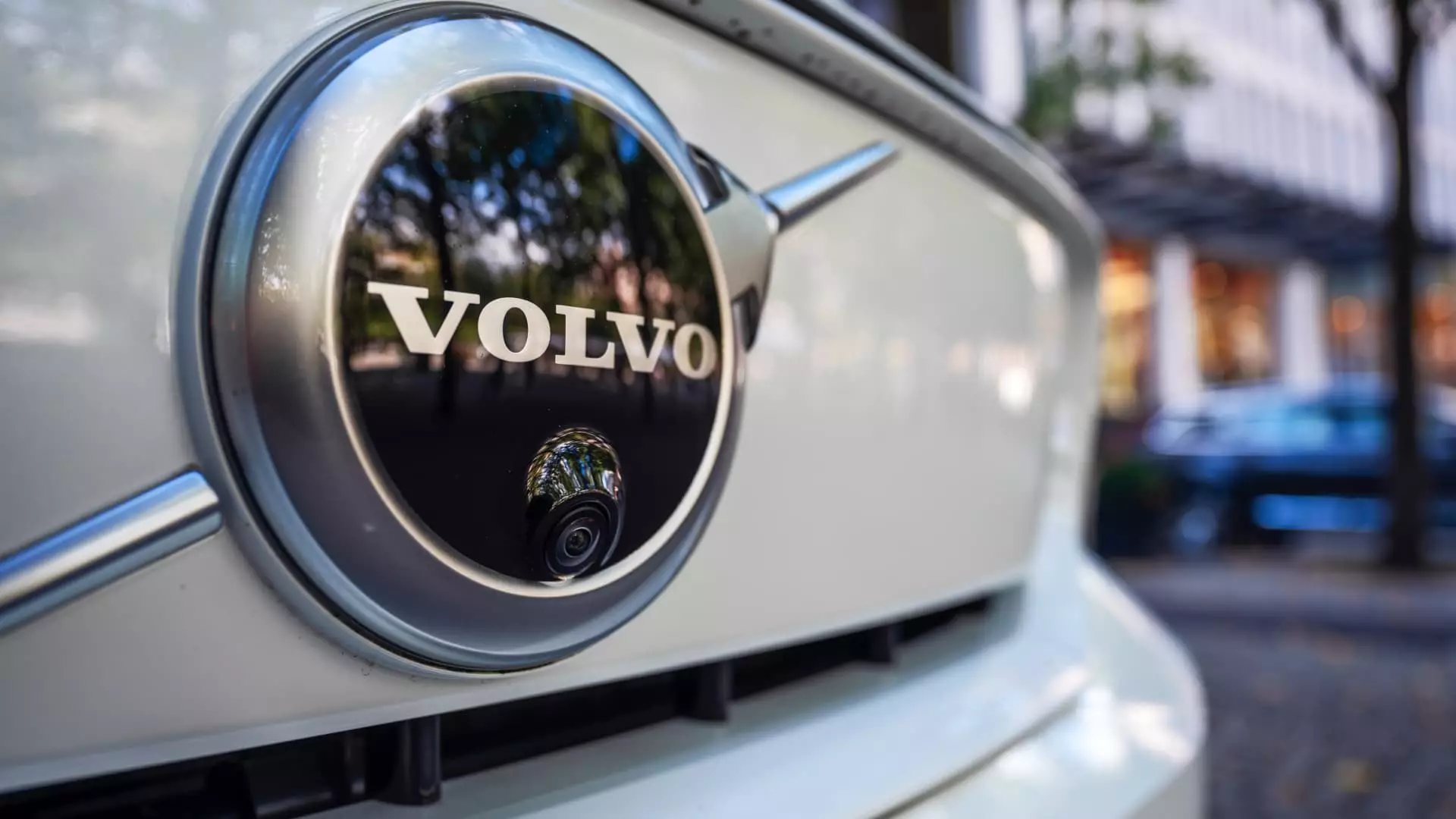In an alarming yet increasingly familiar tale within the automotive industry, Volvo Cars recently disclosed plans to eliminate around 3,000 positions, or approximately 15% of its office workforce, primarily in Sweden. This announcement is part of a broader cost-cutting initiative that aims to rectify the financial malaise plaguing not only Volvo but many automakers globally. Owned by China’s Geely Holding, Volvo’s latest moves underscore the precarious nature of the automotive sector amidst tumultuous trade relationships and shifting market demands.
This painful decision is not merely an internal issue for Volvo; it reflects a systemic challenge faced by automotive companies worldwide—exacerbated by trade tariffs and economic uncertainty. While the market had come to expect a steady rise in electric vehicle (EV) adoption, the reality is a landscape riddled with unpredictability. As Håkan Samuelsson, Volvo’s CEO, explains, these actions are crucial for ensuring that the company can enhance its cash flow while preparing for an increasingly unpredictable future. In doing so, however, the core question lingers: at what human cost does this restructuring come?
Consultancy vs. Core Workforce: A Misguided Priority?
One particularly distressing facet of the job cuts lies in the decision to target not only full-time salaried positions but also around 1,000 jobs held by consultants. The reliance on contract work has surged in many industries, including automotive, as companies seek to maintain flexibility in a changing economic climate. However, this emphasis on consultancy undermines the development of committed, in-house expertise that is essential for long-term stability. By relying too heavily on temporary personnel, companies like Volvo may be sacrificing the dedicated workforce necessary to drive innovation and maintain quality.
This strategic miscalculation raises ethical questions regarding corporate responsibility. Are companies too willing to cast aside human capital in favor of shortsighted financial goals? The elimination of talented individuals—those who have dedicated substantial time and passion to their roles—reveals a certain coldness in corporate culture, emphasizing profit margins over people. In an era that demands greater corporate accountability, Volvo’s actions could be seen as falling woefully short of what modern ethics dictate.
The EV Dream or a Distant Mirage?
Volvo’s ambitions to pioneer in the electric vehicle market were once considered commendable. The company announced a commitment to electrify its fleet, positioning itself as a leader in sustainability. However, recent proclamations signal a retreat from this noble pursuit, as leadership cites a need for “pragmatic and flexible” planning in light of reduced demand for new vehicles. Instead of attacking the barriers to EV adoption head-on, the strategy appears to be one of concession.
This shift in tone is disheartening. It reflects a broader trend where companies prioritize immediate financial stability over long-term environmental commitments. With looming tariffs and geopolitical tensions impacting operational expense, the drive to innovate appears stalled. The automaker that aspired to transform mobility may succumb instead to the inertia of its own financial complexities, creating a paradox where the promise of a cleaner future gives way to a reality governed by economic calculations.
The Broader Economic Landscape: A Call for Responsibility
The unpredictability in the global trade landscape, notably influenced by U.S. tariff threats, demands a responsible and collaborative approach from automakers. As the sector grapples with rising costs of production and concerns about supply chains, the cycle of layoffs may only exacerbate the situation. Rather than resorting to job cuts, there might be more constructive actions Volvo and its peers could explore, such as investing in retraining programs for their workforce or adopting a more transparent dialogue with consumers about challenges and plans for the future.
In a world anxious to combat climate change, a crisis in the automotive industry spells potential setbacks not only for the companies but for consumers and investors alike. Volvo’s narrative is a poignant reminder that progress is not merely defined by financial metrics but by unwavering commitment to a sustainable future. As the automotive industry prepares to navigate these stormy waters, a deeper reflection on humanity—both in the workforce and the environment—becomes imperative. If companies continue to sideline their most valuable asset—their people—they risk losing the very innovation that could restore their fortunes.



Leave a Reply